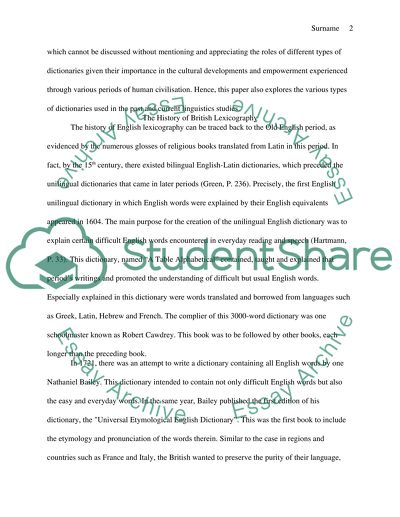Cite this document
(“History of British Lexicography Essay Example | Topics and Well Written Essays - 1250 words”, n.d.)
History of British Lexicography Essay Example | Topics and Well Written Essays - 1250 words. Retrieved from https://studentshare.org/literature/1478308-history-of-british-lexicography
History of British Lexicography Essay Example | Topics and Well Written Essays - 1250 words. Retrieved from https://studentshare.org/literature/1478308-history-of-british-lexicography
(History of British Lexicography Essay Example | Topics and Well Written Essays - 1250 Words)
History of British Lexicography Essay Example | Topics and Well Written Essays - 1250 Words. https://studentshare.org/literature/1478308-history-of-british-lexicography.
History of British Lexicography Essay Example | Topics and Well Written Essays - 1250 Words. https://studentshare.org/literature/1478308-history-of-british-lexicography.
“History of British Lexicography Essay Example | Topics and Well Written Essays - 1250 Words”, n.d. https://studentshare.org/literature/1478308-history-of-british-lexicography.


